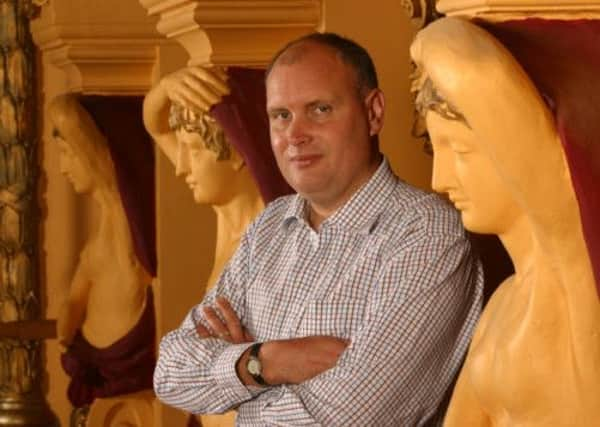Scottish Opera in crisis over shock resignation


No explanation was given, other than a terse, unattributed statement. General director Alex Reedijk was out of the country. No word from the chairman or the board. What else were we to think other than that Scottish Opera was once again in a state of turmoil?
Of course, the rumour mill went into overdrive. Was Joel-Hornak pushed, or did he walk? It was being reported that he and Reedijk did not see eye to eye on how much artistic sway he, as music director, would have in relation to the role Reedijk and his close senior team have effectively assumed as the artistic directorate.
Advertisement
Hide AdA document prepared by Joel-Hornak, outlining his visions for the company, would not have pleased the unbending New Zealander. For starters, it spoke, albeit in clumsy broken English, of noble aims – more main stage operas for a company offering only three this season; balanced repertoire built around an axis of Mozart and Verdi; mixing young singing talent with top-level experienced artists; not hiring inexperienced conductors; and the express wish “not to transform Scottish Opera in [sic] a Gilbert and Sullivan company”. Ouch. This is the company that last ventured into main stage production with 40 performances of The Pirates of Penzance.
Bottom line, Scottish Opera is left looking silly, not least among the worldwide opera community, and leaving itself open to the fundamental question: is Scotland’s national opera company fit for purpose?
Was Joel-Hornak a good appointment in the first place? We’ll never really know, but there were strange twists to the way his appointment was made. He wasn’t a major catch, despite the fact the Scottish Opera Orchestra felt good and inspired by him on the previous occasions he had conducted. He was an experienced, jobbing conductor, who has not held a music directorship of an opera company before.
What conversations did Reedijk have with him about the role? Was the Frenchman duped into thinking he would have more power than would actually be the case, or was he naive in failing to ask the right questions?
Even Scottish Opera’s eventual announcement of the appointment last May was, to borrow the title of Cordelia Oliver’s biography of the company in its heyday, “a curious story”. Why was it so low key – no flag-waving press conference, and no sign of, nor press access to, the man himself? And why was Reedijk’s key selling point about Joel-Hornak that “he’s a man who knows where to find a good coffee in any city”, suggesting his new appointee had been swayed by the quality of coffee available in Glasgow? Frankly, so what?
Anyway, it’s all gone sour, and what are we left with? A company that is artistically rudderless, which is seen as dysfunctional within the industry, and as a result will have endless problems recruiting any music/artistic director worth his or her salt. As one senior Scottish musical figure pointed out, there’s nothing more powerful in the musical world than the operatic grapevine.
Advertisement
Hide AdI imagine the Scottish Government – which funds Scottish Opera to the annual tune of over £8m – is remaining mute simply because, to give Reedijk his due, he has taken the formerly cash-stricken company to a position where it balances the books. So in purely economic terms, today’s Scottish Opera is a success story and not the political inconvenience it once was.
Is that why the only reaction from the Scottish Government has been to dismiss this mess as “operational matters for Scottish Opera”? The arts consultant, Christine Hamilton, a former deputy director of the old Scottish Arts Council, makes the point in her online blog, that “the cancellation through illness of an appearance of a soloist is an operational matter. The resignation of a music director because of artistic differences, is an artistic crisis.” Both the board of Scottish Opera, and the Scottish Government, she says, have responsibility to sort this out.
Advertisement
Hide AdWouldn’t you think the question any SNP politician would be asking, a year from the referendum, is this: what credibility as a statement of Scotland’s cultural identity would Scottish Opera have in a world where Scotland was an independent nation? The answer is, to be brutally honest, none.